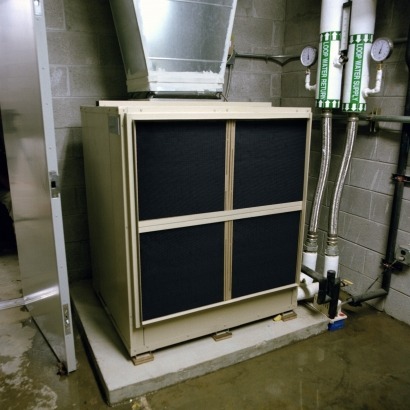
NSF International is an independent global company that writes standards and conducts testing and certification of products in the water, food, health sciences and consumer goods sector. Lately the company has published the first in a series of American National Standards for ground source heat pump piping systems. The new standard, NSF/ANSI358-1, will be referenced in the 2015 International Mechanical Code and provides engineers, regulators and users with assurances that equipment meets minimum performance and safety requirements. This will enable the products to be accepted into the marketplace, reducing liability and increasing confidence among users.
Piping systems for ground source heat pumps have become increasingly popular for residential and commercial building applications given their low operating costs and environmental impact in addition to long-term durability and ease of retrofitting. According to the International Ground Source Heat Pump Association (IGSHPA) geothermal heating systems can reduce energy consumption by 20 to 50 percent and last up to 50 years.
NSF International worked with engineers, pipe manufacturers and representatives of academic institutions and regulatory bodies in order to develop the standard and support the acceptance of the technology. The standard provides physical and performance requirements including strength and durability which are essential for deployment but it also incorporates key elements of other standards such as those developed by the American Society for Testing and Materials (ASTM), the Canadian Standards Association (CSA) and the American Water Works Association (AWWA).
“This new NSF American National Standard helps manufacturers and regulators and provides a credible, science-based foundation for the expanding geothermal pipe industry to gain acceptance in the marketplace,” said Nasrin Kashefi, General Manager of NSF International’s Plumbing programs. “Manufacturers that earn certification to NSF/ANSI Standard 358-1 will help increase confidence and product acceptance by ensuring geothermal pipe complies with all of the standard’s requirements. Having a consensus-based standard developed by an independent third party is essential for the continued growth and acceptance of geothermal technology by local regulatory officials. ”
Allan Skouby at GeoPro Inc commented that the new standard should help the industry to gain credibility within appropriate model codes and should be able to form a good blue-print for other materials as the technology matures.
Further information:

